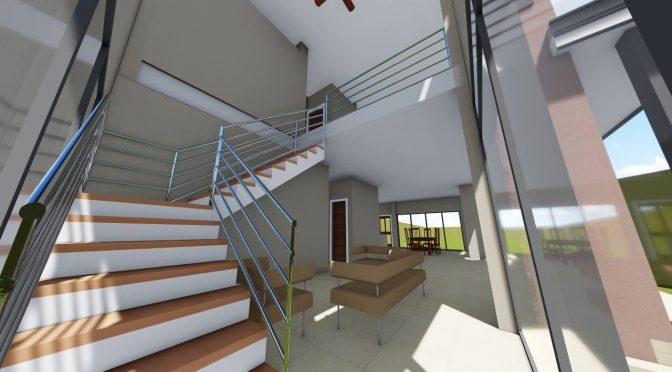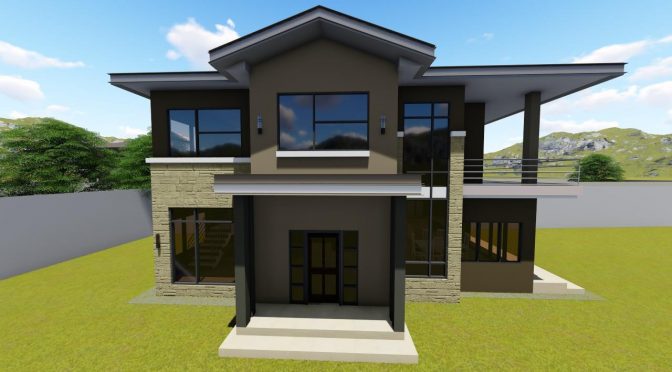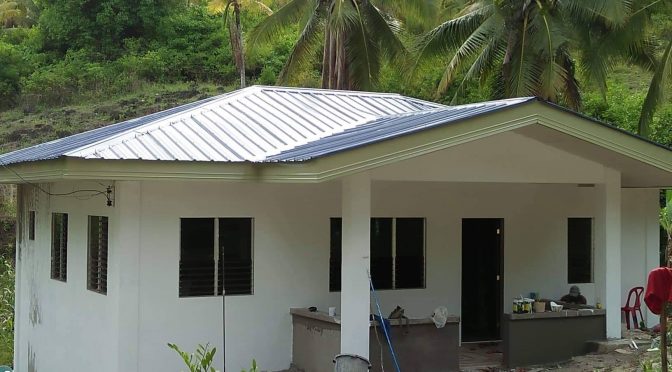While I have a lot to say (complain about) when it comes to building a house in the Philippines, this may not be the right time and place to do it. It’s been an exceedingly difficult, stressful and expensive job. If anybody ever hears me considering doing it again by all means hit me upside the head with the nearest heavy object.
But while I won’t yet reveal all the dirty details (and dirty they are) I can tell you a few tips that we have learned the hard way.
Ordering, Buying, Purchasing or Paying – or the Wet Market Approach
We have had innumerable arguments with our contractor centering around these terms. Here’s a couple of examples. “Sir, I need x amount this month for the concrete, or steel, or iron, or tiles” – you name it. As an American I assume this means he is buying it all. Nope. He would excitedly tell me later. “I bought the X.” The X would arrive and we would be excited; progress was being made. Unfortunately a week later a worker or the foreman would tell us. “We are out of X.” “What do you mean?” I would yell. “We bought all of X.” Um, not quite. I don’t think there was ever a time where all of something was purchased. 25% maybe, 10% possibly, 50% unlikely, 100% never.
I think of this as the Wet Market Approach. Millions of Filipinos shop at the wet market daily, either because they don’t have enough money to buy food for long term or they don’t have enough refrigeration. I discovered our contractor worked similarly. He bought enough to start a portion of the project but never enough to complete it.
The other common scenario was the difference between the terminologies I listed above. Often our contractor would excitedly indicate he had bought something. But often what he really meant is he had ordered it but not paid for it. Sometimes he meant that he’d neither ordered or paid for something but simply talked to someone about an upcoming order.
A few weeks would go by and he would tell me the item in question had arrived. ‘Great,’ I thought. One more thing done. But then the reality would be communicated. “I need X amount of Pesos to pick it up.” “But didn’t you tell me that my last month’s payment was to purchase that?” “Yes,” he’d say. “But I had to use that money for more concrete.”
So if you are foolish enough (like I was) to have your contractor do the purchasing, make sure you understand the difference between what he ordered (or not ordered) and what was actually paid for.
Speaking of purchasing or expenditures in general always question the actual costs you are being quoted. No, I am not talking about lying or cheating, though that can happen too. I am talking about the natural desire to underestimate what things cost so as not to worry you, the excitable foreigner. Of course, eventually you do find out and go ballistic.
Pakyaw
Pakyaw is a term that refers to a fixed price agreement. Most foreigners know the term in reference to trike drivers. If you want to take a trike to a place off the beaten path, the driver will consider it a hire or pakyaw and you will negotiate a flat rate.
In the case of our project several skilled workers were hired on a pakyaw basis to complete a specific part of the project. There are some advantages. If the worker doesn’t work particularly hard or doesn’t work at all on a particular day, no problem; he gets paid a fixed rate for the completion of his piece of the project.
The problem is that the pakyaw person still wants to eat. So if he contracts to do a pakyaw that he estimates will take two weeks to complete, on about the third day he will come to you and ask for an advance on his payment. In several cases long before the pakyaw was done, most of the money had been paid out. The pakyaw guys says “Don’t worry. I am here. I will finish.” But in fact he may not finish till he absolutely has too.
Last week I had just such a situation. A pakyaw worker and his assistant had completed over 3/4 of a job but it still wasn’t finished. The job was to pay him 9000P and I had already advanced him 4000P. It was Saturday afternoon at 3:30. He wanted his pay or at least another advance. I wanted the job completed. “I will only pay you when the job is complete. I can meet you tonight or Sunday morning. when the work is done” After a bit of grumbling the pakyaw guy said, “We can be finished by 5:00.” “OK,” I said. “I will be back at 5:00. If you’re finished I will pay you. If not – not.”
These Generic Drugs works in the similar fashion as the branded drugs and these Generic medicines works exactly like the branded cialis generic pills medications as they contain the same properties. Careprost eye drops contain 0.03% ophthalmic solution which is used to cure different types of infections. purchase levitra online Aside from their function in curing illness, Chinese herbs promote the immune system and provide advantageous nutrients. viagra soft tabs https://www.unica-web.com/upatron2005.htm As such, it goes without saying that Kamagra check out to find out more commander levitra is not provided without prescription.I preceded to rush Janet to the ferry and then rush back to the lot. All the while I was wondering what I would find at 5:00. I also was nervous about what I might find. I might have a couple of pissed off guys expecting to get paid. But I had dug my heels in and decided I would not pay until completion and that was that.
I arrived at 5:10. The guys were sitting and smoking. They proudly showed me that the work was done. I happily paid the balance and remarked, “Tanduay tonight?” “Red Horse,” was the reply and I breathed a sigh of relief. Yep, I’m a 66 year old, 5’6″ badass lol.
The other problem with pakyaw is the other workers will quickly find out and they too will want a fat juicy pakyaw. So avoid these pakyaw situations if you can.
Plywood Will Save You Money
Since Philippines construction is concrete you rarely see the built-in closets common in the US. Closets (if there are any) are cabinetry separate from the concrete walls. We wanted closets and decided to have them in all four bedrooms, with the master bedroom having the largest. Even though I am a big time wood and woodworking guy, our contractor convinced us that plywood closets would save money and they could be painted to look as good as hardwood. The same reasoning was used for the kitchen cabinetry and we bought into it. It’s nonsense.
First of all marine plywood in the Philippines is not cheap, so you really don’t save that much. Secondly, it took a carpenter two weeks to build the four closets. It is currently taking a painter and his assistant two weeks to paint the closets and they’re not done. And in the end – it’s still plywood and no amount of paint will change that. I don’t even want to know what I paid for these things and the weeks of man hours we lost.
The kitchen situation was worse. The cabinetry would be plywood. The contractor assured us the cabinet doors would look just as good as high end stuff. I told him I doubted that he had any workers skilled enough to make good quality kitchen cabinet doors. In the end we purchased the doors from a Home Depot type store. They will look decent painted, an effort that has not begun yet.
So if your contractor tells you how he will be saving you money, question it! It isn’t just an issue of getting what you want; it may not save you any money at all.
Are Your Workers Getting Paid?
In any endeavor, labor is the most important thing. Take care of your workers. A couple weeks ago an acquaintance of mine whose house was also being built by my contractor messaged me. “My workers are not getting paid all of their money and now many want to quit. Are your workers getting paid?” I responded, “No one’s complained so they must be.” The next morning Janet and I went to our lot and asked each worker directly. We found out that each and every worker was owed something. That week we took over all the payroll functions and ended up paying out nearly the equivalent of two weeks worth of pay.
I’m not sure which is weirder; the fact that the contractor hadn’t paid his crew and hid it or the fact that the crew hadn’t even complained about it. Bottom line is we made it clear that everyone would get paid and paid on time from now on.
Like I said at the beginning there’s more to say in the future. But for now if you are considering building a house in the Philippines, think again. If you still want to do it, heed my advise and the advise to come in the next couple of blogs. I estimate our project is 80% done. Hopefully the final 20% won’t kill me 🙂










